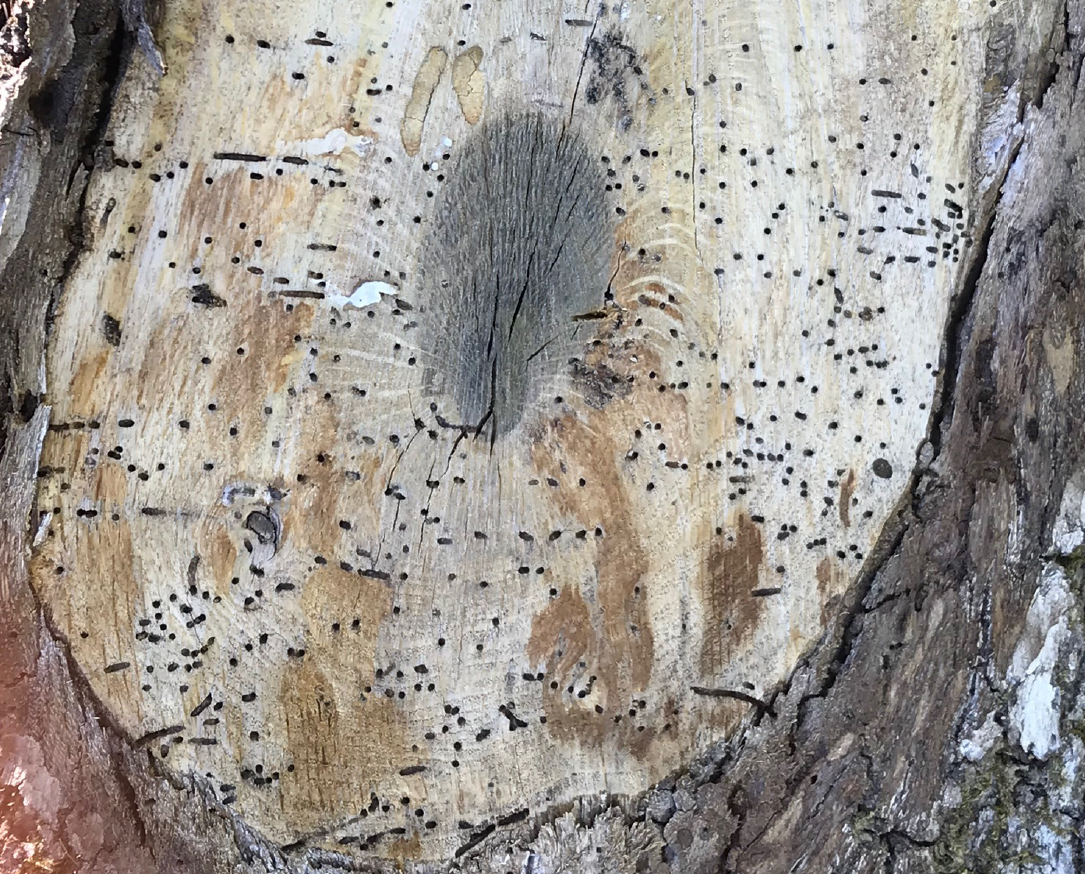
The Mediterranean oak borer leaves small, round holes in the cut face of wood.
Photo courtesy Bob Rabaglia, U.S. Forest Service
An invasive beetle that attacks oak trees has been found in several Oregon white oaks.
The Mediterranean oak borer is native to Europe, western Asia and northern Africa. The insect tunnels beneath a tree’s bark, carrying with it a fungus that grows within the tree and becomes the borer’s main food source.
The fungus can cause disease called oak wilt, which blocks trees’ ability to take in water and nutrients. Infected trees typically die within a few years.
In a press release, Oregon forestry officials asked Oregonians to avoid moving firewood from oak trees beyond the local area where it was cut, to avoid spreading the invasive pest.
Landowners should also report oak trees with dying crowns that are also showing symptoms of an infestation, such as pale boring dust on the tree’s exterior, small round black holes, and black galleries or trellises on the cut face of wood.
The borer typically makes perfectly round entrance holes that are smaller than pencil lead and leaves behind very pale dust.
The wood-boring beetle first turned up in North America in 2017, when it was found in California. There it killed several native oak trees.
It has since been found in Oregon, including Multnomah, Clackamas, Washington and Marion counties. More recently, it was found in Wilsonville this summer.
Oregon forestry and agriculture officials said they are communicating with California agencies about the potential impacts of the invasive species and possible mitigation strategies.
Correction: A previous version of this article misstated when the Mediterranean oak borer was found in Wilsonville. It was found this summer.




